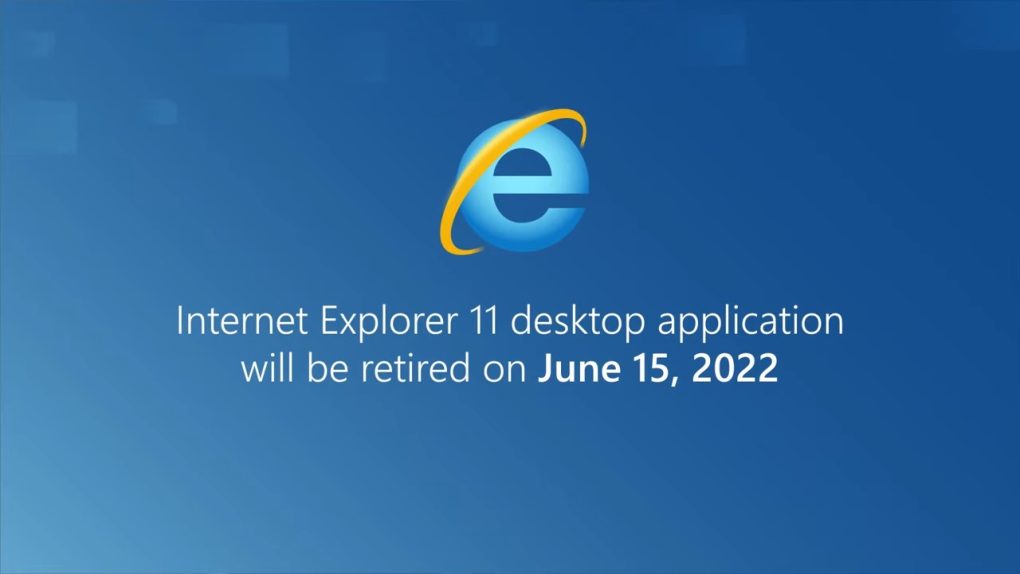Nearly 26 years after starting its journey, Internet Explorer is finally done exploring. Microsoft announced this week that the Internet Explorer 11 desktop application will be retired and go out of support for certain versions of Windows 10 on June 15th, 2022. This will not affect the Long-Term Servicing Channel of Windows 10, but every consumer copy of the operating system will end support for Internet Explorer, including Windows 10 Home and Pro.
Microsoft Edge Enterprise & Security product team lead Sean Lyndersay talked about how Edge would be replacing Internet Explorer in a blog post on Wednesday:
Today, we are at the next stage of that journey: we are announcing that the future of Internet Explorer on Windows 10 is in Microsoft Edge. Not only is Microsoft Edge a faster, more secure and more modern browsing experience than Internet Explorer, but it is also able to address a key concern: compatibility for older, legacy websites and applications. Microsoft Edge has Internet Explorer mode (“IE mode”) built in, so you can access those legacy Internet Explorer-based websites and applications straight from Microsoft Edge.
Lyndersay then provided three reasons for why now is the right time to say goodbye to IE. The most important factor is improved compatibility because even though Internet Explorer 11 is going out of support, there is an Internet Explorer mode in Microsoft Edge that provides users built-in support for legacy websites and apps. Plus, Edge is built on the Chromium project, meaning it’s better equipped to handle modern sites as well. Everything IE does, Edge does better.
The second reason for replacing IE with Edge is streamlined productivity. Edge offers many features that IE simply can’t match, from putting tabs to sleep to free up resources to enabling vertical tabs to free up space on your display to organizing the information you find on the web into collections. None of this is possible on IE, and countless more features are currently in the works for Edge.
Third, Edge is far more secure than IE. Microsoft rolled out monthly security updates for IE 11, but on Microsoft Edge, patches for dangerous vulnerabilities can be issued within days or even just hours. As often as we talk about zero-day vulnerabilities on this site, you can see why having security patches at the ready within hours would be a vital component for any browser.
For consumers that are still using Internet Explorer 11 as their desktop browser of choice, Microsoft recommends transitioning to Edge before June 15th, 2022. If you own a Windows 10 device, the new browser is likely already installed on your computer, but if not, you can download it right here. As for organizations using IE, Microsoft notes that the IE mode in Edge will be supported through at least 2029, so companies should read about Internet Explorer mode on this website and make plans to transition as well. You can watch a video about the iconic browser’s retirement below:








